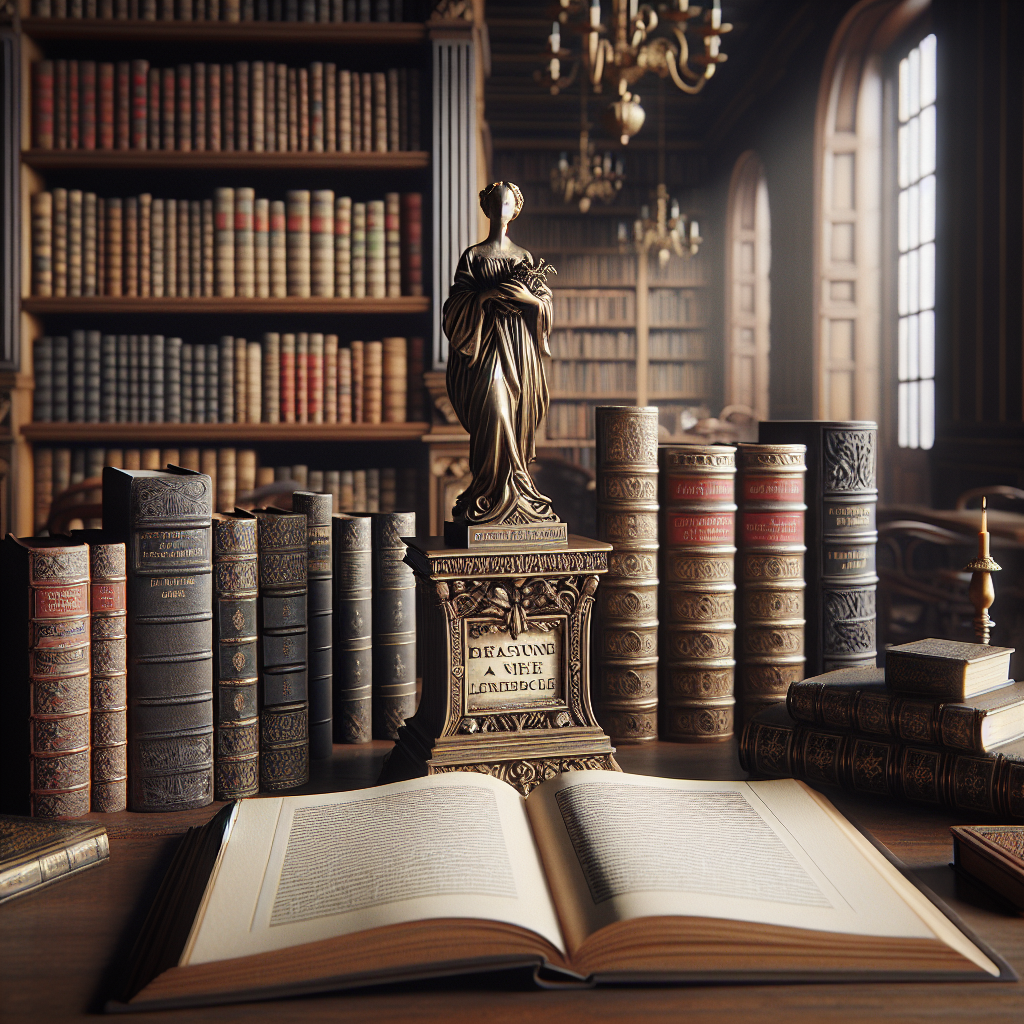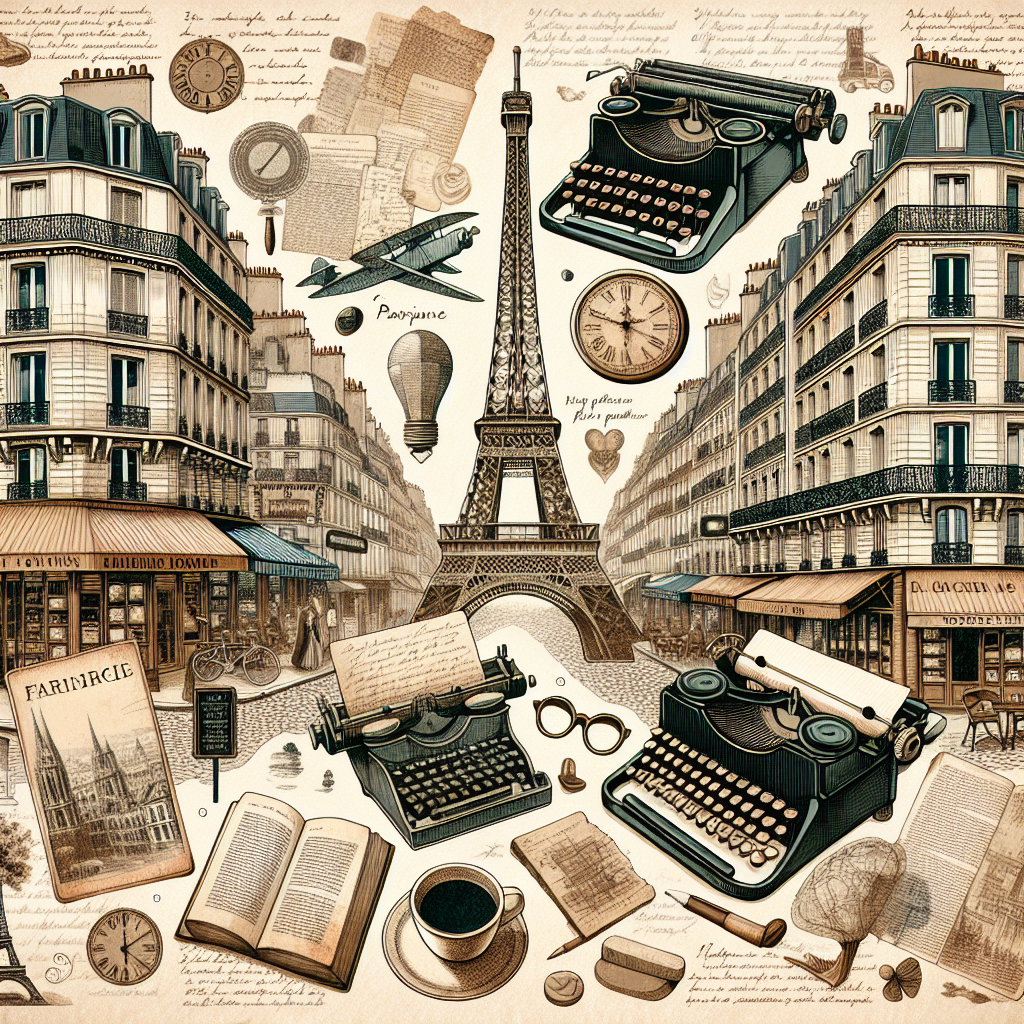Exploring French Renaissance Literature
Introduction to French Renaissance Literature
French Renaissance literature refers to a period of literary activity in France during the 15th and 16th centuries, coinciding with the broader European Renaissance. This era is characterized by a revival of interest in classical antiquity, humanism, and a focus on individualism, which significantly influenced the writing styles and themes explored by authors of the time.
Noteworthy developments in literature included the emergence of prose forms, such as essays and novels, alongside the flourishing of poetry. Authors drew inspiration from ancient Roman and Greek texts, adapting these influences into a distinct French context. This literary movement produced influential works that would impact future generations of writers, establishing foundational elements of French literature.
Significance of the French Renaissance Era
The French Renaissance marked an important transition from medieval thought to a new emphasis on human experience and rationality. This era not only reshaped literary creation but also influenced various cultural domains, including philosophy, art, and science. Several factors contributed to its importance, such as:
| Factor | Description |
|---|---|
| Humanism | Focus on human potential and achievements, reflecting in literature, emphasizing the value of individual agency. |
| Rediscovery of Classical Texts | Revival of interest in works from ancient Greece and Rome, enriching the literary landscape. |
| Language Development | Establishment of written French as a literary language, moving away from Latin, making literature more accessible. |
| Political and Social Change | Shift towards centralized power and the rise of the middle class, leading to new themes within literature reflecting contemporary society. |
The influence of French Renaissance literature can be seen in many modern literary forms and thematic explorations. Authors from this period laid the groundwork for subsequent movements, such as the French Romantic literature of the 19th century. Understanding this era provides readers with valuable insights into the evolution of literature in France. For more insights on literary history, readers can explore the history of French literature to grasp the roots and branches of the literary traditions that followed.
Notable Authors and Works
French Renaissance literature is characterized by a wealth of influential authors and their iconic works. This section highlights some of the most prominent figures and their contributions to this vibrant literary period.
Prominent French Renaissance Authors
Several authors played a crucial role in shaping French Renaissance literature. The following table outlines some of the key figures and their notable contributions.
| Author | Notable Works | Contribution |
|---|---|---|
| François Rabelais | “Gargantua and Pantagruel” | Satirical novels exploring humanism |
| Michel de Montaigne | “Essays” | Introduced the essay as a form |
| Pierre de Ronsard | “Odes” | Celebrated lyric poetry |
| Louise Labé | “Debate of Love” | Voiced women’s perspectives |
| Clément Marot | “The Elegies” | Innovated French lyric poetry |
Iconic Works of French Renaissance Literature
The literary contributions of the French Renaissance era produced several iconic works that continue to resonate today. The following table lists some of these significant titles and their themes.
| Work | Author | Theme |
|---|---|---|
| “Gargantua and Pantagruel” | François Rabelais | Absurdity, humanism |
| “Essays” | Michel de Montaigne | Self-reflection, skepticism |
| “Odes” | Pierre de Ronsard | Love, nature |
| “Debate of Love” | Louise Labé | Courtly love, feminist perspective |
| “The Elegies” | Clément Marot | Emotion, personal experience |
These prominent authors and their iconic works not only reflect the themes of love, humanism, and self-exploration that defined the French Renaissance, but also set the foundation for later literary movements. Readers interested in delving deeper into French literature can explore more classics through our article on french literary classics.
Themes and Characteristics
Common Themes in French Renaissance Literature
French Renaissance literature is marked by distinctive themes that reflect the social, cultural, and philosophical shifts of the era. Some of the most prevalent themes include:
| Theme | Description |
|---|---|
| Humanism | Emphasis on human potential and achievements, focusing on individualism and classical learning. |
| Nature | A celebration of nature’s beauty, often depicted in poignant imagery and exploration of the natural world. |
| Love and Passion | Exploration of love, romance, and desire, often portrayed within complicated emotional contexts that challenge societal norms. |
| Religion and Morality | Contrast between religious beliefs and human desires, often questioning faith and morality through literary works. |
| The Quest for Knowledge | A desire for knowledge and understanding, promoting education and the pursuit of wisdom through literature, philosophy, and the arts. |
These themes not only illustrate the values of the time but also set the stage for the literary movements that followed. For readers interested in exploring these themes further, many French literary classics delve deeply into these subjects.
Key Characteristics of French Renaissance Writing
The characteristics of French Renaissance writing encompass various stylistic elements and techniques that define the period. Some essential traits include:
| Characteristic | Description |
|---|---|
| Use of Classical Forms | Writers often adopted forms inspired by ancient Greek and Roman literature, incorporating classical structures and ideas. |
| Rich Language and Imagery | The use of elaborate language and vivid imagery to evoke emotions and build atmosphere. |
| Exploration of Identity | Focus on individual identity and self-exploration as a response to changing social dynamics and personal introspection. |
| Diverse Genres | A variety of genres emerged, including poetry, essays, drama, and philosophical treatises, reflecting the multifaceted nature of the period. |
| Intertextuality | Frequent references to earlier texts, encouraging dialogue between authors and their works, blurring the lines of originality. |
These characteristics illustrate the innovative spirit of the era and have significantly influenced both historical and contemporary literature. For those interested in the evolution of French literature, understanding French literature history provides valuable insights into how these elements evolved over time.
Literary Impact and Influence
Influence of French Renaissance Literature on Modern Writing
French Renaissance literature has left a profound mark on contemporary literature. The innovative ideas and narrative techniques that emerged during this period have shaped the literary landscape in various ways. Many modern authors draw inspiration from the works of Renaissance playwrights, poets, and novelists, blending past themes and styles with their own unique perspectives.
| Literary Element | Example Influence |
|---|---|
| Character Development | Complex characters with psychological depth |
| Use of Satire | Humorous criticism of societal norms and politics |
| Poetic Forms | Adoption of sonnets and lyric poetry in contemporary works |
| Narrative Style | Stream-of-consciousness techniques in modern novels |
The exploration of individualism, a prominent theme in Renaissance literature, is especially relevant today. Authors often express personal thoughts and feelings in ways that resonate with readers who value authenticity and introspection.
Appreciating the Legacy of French Renaissance Authors
The legacy of French Renaissance authors continues to be relevant for readers and scholars alike. Figures such as François Rabelais, Michel de Montaigne, and Pierre de Ronsard crafted works that still resonate today, addressing timeless themes such as morality, human nature, and the human experience.
| Author | Notable Work | Legacy |
|---|---|---|
| François Rabelais | “Gargantua and Pantagruel” | Impact on satire and literary humor |
| Michel de Montaigne | “Essays” | Foundation of the personal essay genre |
| Pierre de Ronsard | “Les Odes” | Influence on French poetry and romantic themes |
Readers today can find a wealth of knowledge and inspiration in the writings of these authors. Their exploration of the human condition along with innovative narrative forms reflects not only the era’s cultural shifts but also offers insights that remain significant in the study of French literature history and its evolution into French literary classics. The impact of French Renaissance literature is evident in various literary awards and adaptations in French literary magazines, showcasing the enduring relevance of these influential works.
Recommended French Renaissance Literature
The French Renaissance era produced a remarkable array of literary works that continue to resonate with readers today. The following sections highlight must-read books from this period and provide insights into how one can explore the rich tapestry of French Renaissance literature.
Must-Read Books from the French Renaissance Era
Several foundational texts embody the essence of French Renaissance literature. Below is a table showcasing notable works along with their authors and a brief description:
| Title | Author | Description |
|---|---|---|
| Gargantua and Pantagruel | François Rabelais | A satirical tale that explores the experiences of two giants, highlighting humanism and the absurdity of life. |
| The Heptameron | Marguerite de Navarre | A collection of tales inspired by Boccaccio, focusing on love, politics, and morality. |
| Les Tragiques | Agrippa d’Aubigné | A poetic reflection on the human condition and a critique of societal injustices, often seen as a precursor to later French tragedy. |
| The Art of Poetry | Joachim du Bellay | A manifesto on the importance of poetry for the French language, advocating for a national literature. |
| The Prince | Michel de Montaigne | A philosophical exploration that challenges conventional ideas and emphasizes personal reflection and skepticism. |
For those interested in deeper explorations, these works serve as excellent entry points into the themes and styles characteristic of the era. Readers may also want to explore more about french literary classics for additional insights.
Diving into the World of French Renaissance Literature
Exploring French Renaissance literature offers a chance to understand the cultural and historical nuances of the time. Readers can engage with the texts in various ways, enhancing their appreciation for the literature. Here are some methods to dive into this literary world:
-
Join Book Clubs or Reading Groups: Engaging with others facilitates discussions that can enrich understanding and enjoyment of the texts.
-
Explore Related Literary Genres: Understanding the transition from Renaissance literature to later movements, such as french romantic literature, can provide context for how these works shaped and influenced future writings.
-
Utilize Literary Criticism: Delving into the analyses presented by french literary critics can shed light on different interpretations and themes that may not be immediately apparent to the casual reader.
-
Access Online Resources and Magazines: Subscriptions to french literary magazines can keep readers updated on discussions and critiques surrounding French literature, both historical and contemporary.
-
Visit Libraries and Archives: Many libraries and institutions house collections or exhibits related to the Renaissance period, allowing readers to connect with the texts on a historical level.
Readers of French Renaissance literature will find an enriching experience that not only entertains but also offers critical insights into the human experience across time. For those intrigued by narratives from later periods, exploring 20th-century french novels can present a fascinating juxtaposition to Renaissance sensibilities.

